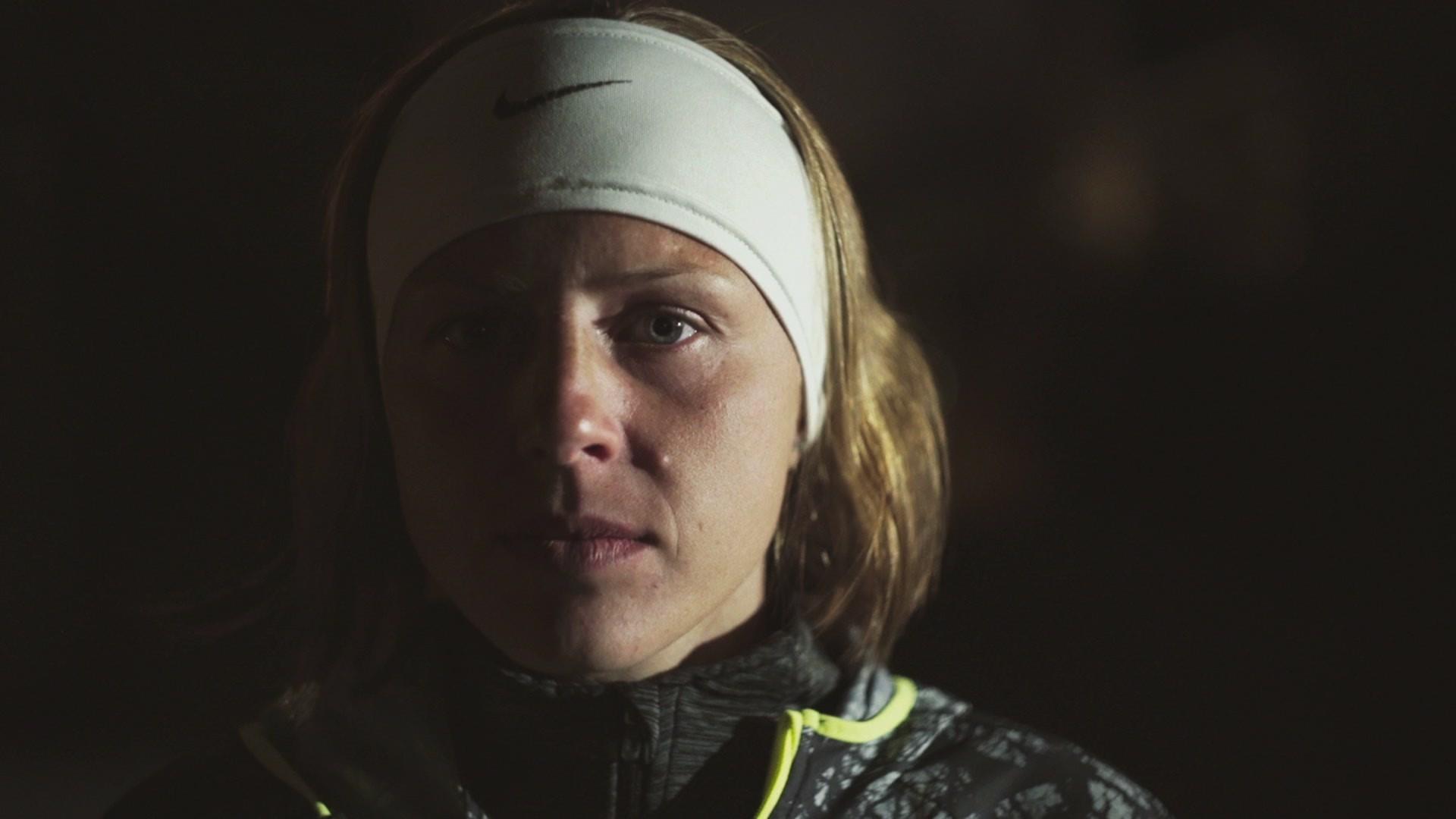Russian media cast Olympic ban as Western plot
- Published
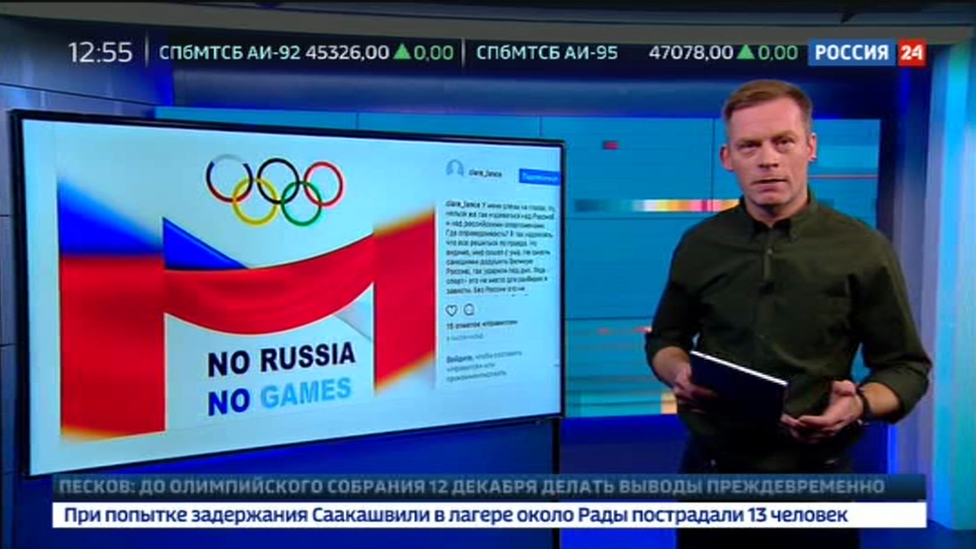
Russian TV channels have been heavily pushing the #NoRussiaNoGames hashtag, both before and since the IOC decision
Russian media have responded to the Olympic ban in the same way they have ever since the doping scandal broke - with flat denials and allegations that this is an anti-Russian witch hunt.
One of the key messages from pro-Kremlin outlets has been that there is no evidence for the World Anti-Doping Agency's (Wada) findings that there was a Russian state-sponsored doping programme during the 2014 Sochi Winter Olympics.
Coverage has also been notably devoid of any soul-searching or questioning of Russian officials' actions.
Soon after news of the IOC ban broke, Alexander Zubkov - the head of Russia's bobsleigh federation who was banned from the Olympics for life - appeared on all of Russia's three nightly prime time news programmes to say that there was "no proof" - "only verbal claims, some kind of unproven documents and papers".
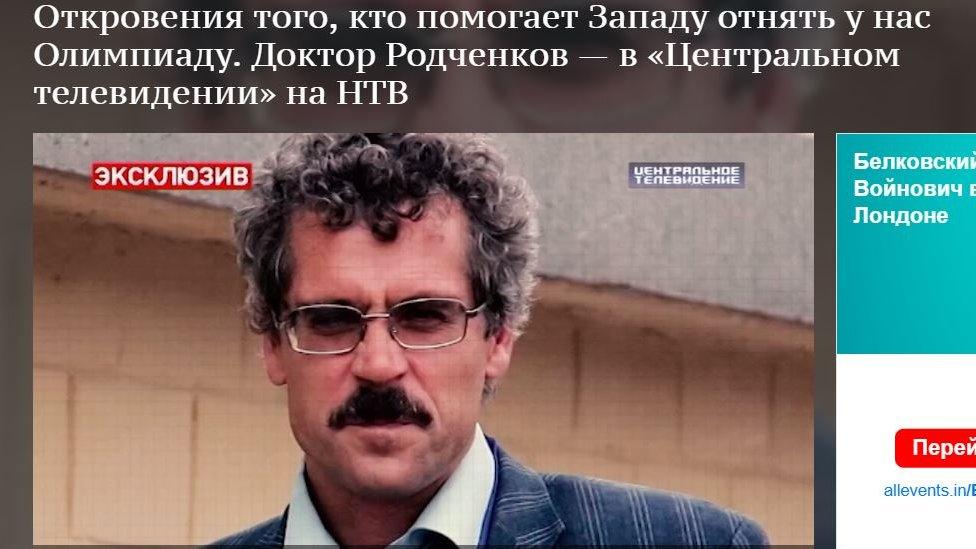
NTV has accused Mr Rodchenkov of helping the West "take away our Olympics"
The reporter for NTV - one of Russia's main pro-Kremlin channels - covering the news from the IOC headquarters in Lausanne said the decision was "biased" and "absolutely political, with very little to do with sport".
'Psychiatric help'
One tendency has been to tar Grigory Rodchenkov - the whistleblower who was the main source for Wada's findings on the Russian doping programme.
Prime Minister Dmitry Medvedev recently said Mr Rodchenkov, the former head of the Russian anti-doping agency, Rusada, required "psychiatric help".
Last week, NTV broadcast what it said was footage of Mr Rodchenkov that allegedly proved that he sold his story for personal profit.
But in none of the clips shown by the channel does he say anything that casts doubt on his evidence to Wada.
Misleading reports
Russian TV also misrepresented key elements of the Olympic doping probe.
After the IOC's decision, official Rossiya 24 TV said the case against Russia was built on "just one informant" - Mr Rodchenkov.
But the 2016 report by lawyer and academic Richard McLaren says it had "highly credible cross-corroboration" of Mr Rodchenkov's testimony from other witnesses who had asked not to be named.
Both Rossiya 24 and state television's Channel One also claimed that Russia had not been given an opportunity to defend itself.
This was later contradicted on air by the head of the Russian Olympic Committee, Alexander Zhukov, who said reports like this were "not true", adding: "We were able to present our case to the [IOC] Executive Committee members."
'Anti-Russian'
In addition to seeking to undermine the IOC's evidence, Russian media have been stressing that the whole thing has been cooked up by Russia's enemies in the West.
A report on Russia's main state-controlled TV station, Channel One, said the IOC's Executive Board was "under enormous pressure from biased sports officials who have been anti-Russian from the very beginning".
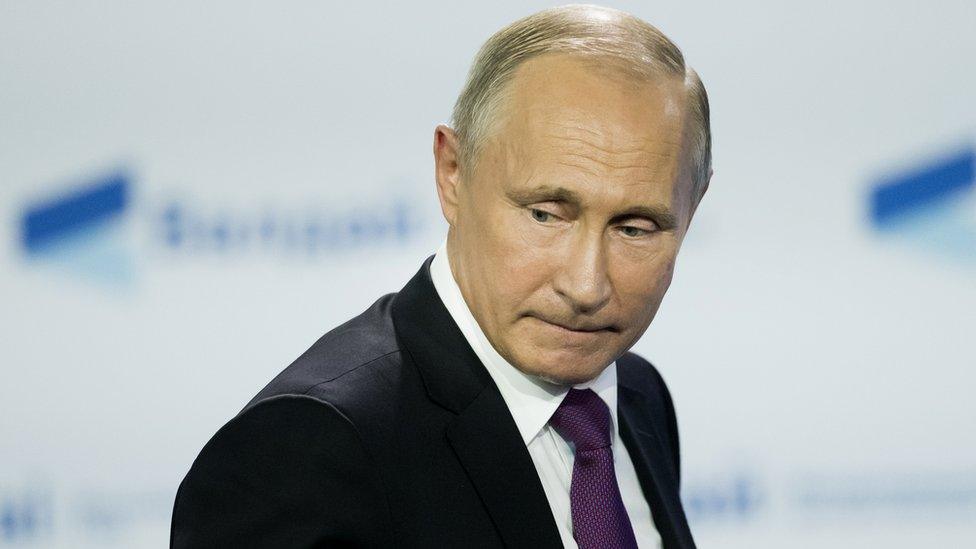
President Putin has said the scandal is a ploy to damage him before elections in March
In its report on Mr Rodchenkov in November, NTV's revelations accused him of "helping the West take away our Olympics", and even called him a "traitor" and a "snitch".
The charge has been led by President Vladimir Putin himself, who said back in November that the IOC was acting under pressure from mainly US-owned sponsors, TV rights holders and advertisers.
"The [Winter] Olympics is starting in February, and when is our presidential election? In March," he said.
"Someone needs disaffection among sports followers and athletes with the state's alleged involvement in violations."
Pro-Kremlin commentators on social media have responded with wounded defiance. "I won't watch this Olympics," Igor Korotchenko, external, wrote on Twitter.
BBC Monitoring, external reports and analyses news from TV, radio, web and print media around the world. You can follow BBC Monitoring on Twitter, external and Facebook, external.
- Attribution
- Published5 December 2017
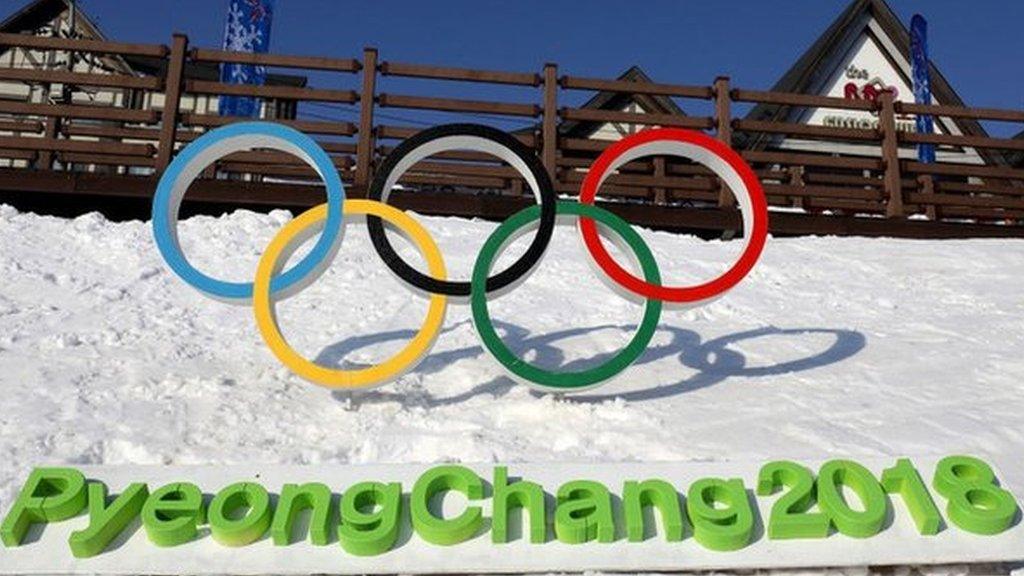
- Attribution
- Published6 December 2017
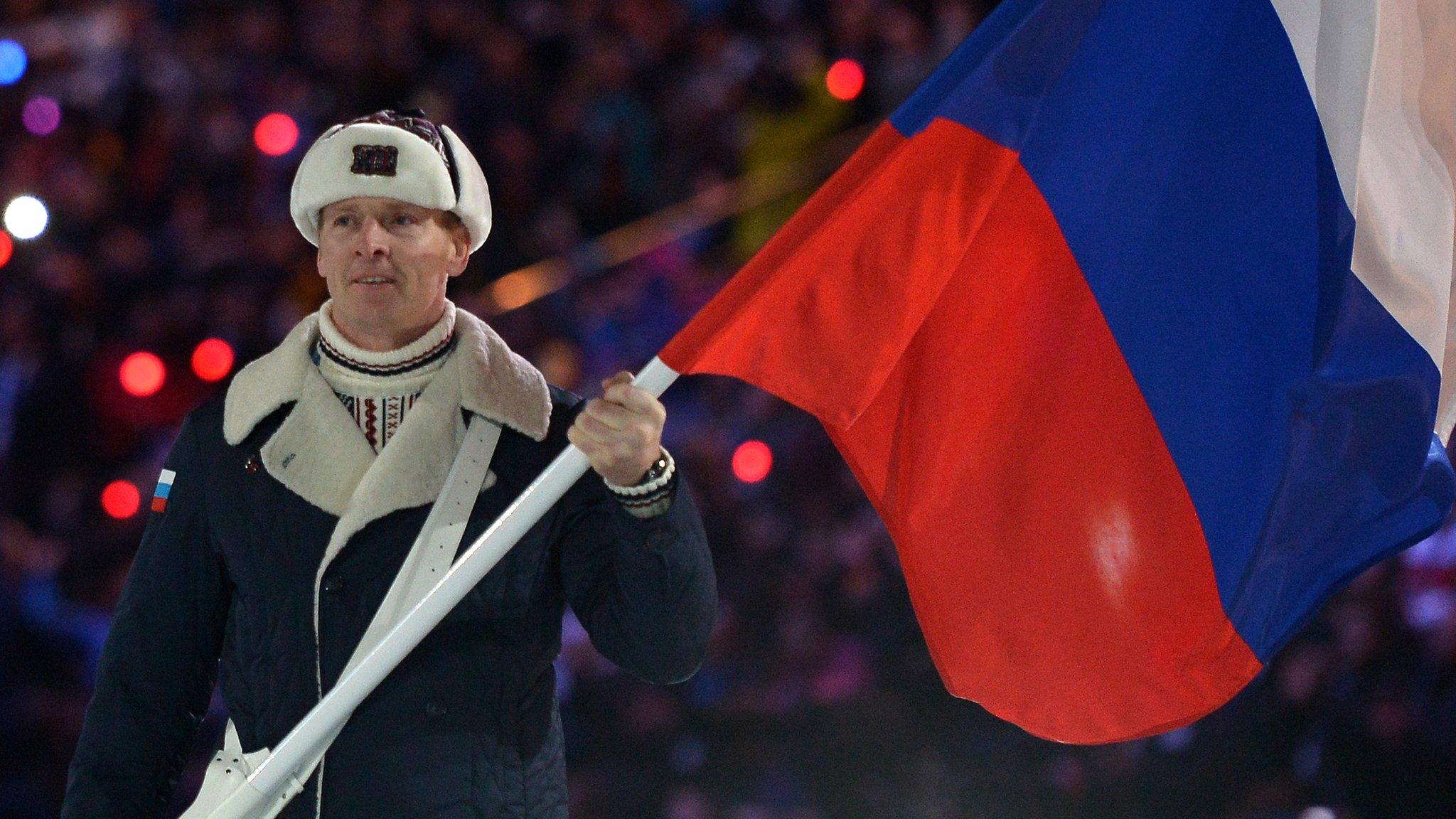
- Published9 December 2016
